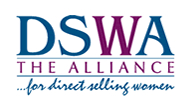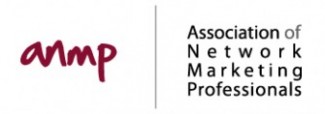How Many Is Your Company Waving?
By Len Clements © 1997
This industry is over half a century old. There is nothing new. Pretty much everything has been tried and what you see today are just variations and enhancements of the same thing that’s already been done. So, if you want to know how well a certain type of product fairs in the MLM marketplace, or how a certain compensation plan gimmick will effect distributor earnings, or if a certain aspect of an MLM program will raise the ire of a state or federal regulator, all we have to do is look back at all the companies who have tried it in the past and see what happened to them.
Here are some examples of a few not so new ideas that are either hot, or making a comeback. By the way, not being an attorney, judge, or agent for any regulatory body, I must make clear that I am not declaring any of these acts to be illegal. What I am saying (suggested wording complements of my literary attorney) is that, in my laymen’s opinion, they may cause the company to be legally vulnerable.
Now that I have the C.Y.A. provision out of the way, let’s begin…
TRAINING BONUSES
While some companies have masterfully depicted their “coding bonuses” as not coming from any distributor training fee, others are openly bragging about their “Huge up front training bonuses.”
Why is this a red flag? Let’s go back to the FTC v.s. Amway decision in 1979, when the FTC accused Amway of being an illegal pyramid. Amway won that case (fortunately for all of us) and the test which they past, which is right in the language of the decision, was simply, “Can the last person in make money?” In the case of Amway, the court said, Sure, the last person in, who has no downline, can still make money by buying the product at wholesale, marking it up, and reselling it to someone who is not an Amway distributor. This is, to this day, the defining criteria of a legal network marketing opportunity.
Okay. So, can you buy a $495.00 distributor training package, mark it up even more, and resell it to someone who is not a distributor? Obviously, this would be absurd. The only ones who buy the training packages are distributors, therefore the only way you can earn bonuses from this volume is by recruiting more distributors. As even the most novice MLMer surely knows, you can’t earn money from recruiting! No, not even indirectly.
Now, if you were to ask a distributor who represents an opportunity that does offer training bonuses how they can do that (and oh yes, I have, many times) they will usually quote the company’s rationalization of, “Well, we have all these other products too — and you certainly can retail those to non-distributors.” Which is kind of like saying, Hey, it’s okay that I rob banks because I give a lot of my loot to charity. Just because you have a lot of legal ways to earn commissions and bonuses doesn’t make the possibly illegal ways any more legal.
Or, they might respond by telling you about how they’ve already been investigated by the FTC or some AG. This response was given to me recently by a distributor for a company that is about four years old, which added training bonuses just three months ago. So it’s very likely the “code” didn’t even exist the last time any regulatory agency looked at them. Plus, investigations usually are very specific in their intent. If an investigator goes in looking for evidence of misleading income claims or front loading, then that’s what they look for — not indirect rewards for recruiting. What’s more, such a retort may even raise yet another red flag since it could easily be interpreted as an indirect claim to regulatory approval of their training bonuses (a BIG no no).
Recent cases that provide precedent would be, for example, the Final Judgment in the case of California v.s. Destiny Telecom. Here in (part 5, section g) the state demanded that there be no commissions paid on anything directly or indirectly related to sales aids or training (ironically, to my knowledge, Destiny never did either of these things). In the case of the FTC v.s. World Class Network, it was determined that a training package on how to be a travel agent, which was arguably a product that could have actually been retailed, was not a commissionable product via an MLM system of compensation (WCN can still direct market the product). The state of North Carolina has ruled in more than one case that only verified retail sales to non-distributors can produce commissionable volume. Yes, it’s true that this essentially makesevery MLM company illegal in that state, but none-the-less you certainly would have a hard time convincing the NC AG that you can retail even one of your distributor training packages to non-distributors, let alone all of them. Recently the Pennsylvania Attorney General’s office filed suit against Nu Skin due primarily to their Big Planet division selling and paying commissions on their $300.00 training packages (this issue has since been resolved). And if there were any doubt left, the Federal Trade Commission recently closed down FutureNet due mainly to their up front training packages. This action has since been resolved with the FTC and the “Final Judgment and Permanent Injunction” signed my FutureNet should eliminate any possible argument over this issue. In the “Definitions” section, part F, “Compensation related to recruitment” is defined as “…compensation paid to participants in a multi-level marketing program as a result of or relating to any type of training provided to either new or existing participants.”
PAYING ON PRODUCT VOUCHERS/DOWN PAYMENTS
When you pay money to your MLM company for a product or service, you must take possession of that product or service before any commissions or bonuses can be paid to your upline on that sale. For example, if you send $200 to the company as a down payment or layaway towards a product, let’s say a gold coin, and then the company pays your upline from that $200 payment, but you haven’t actually received the gold coin yet, what has happened? That’s right — nothing but an exchange of cash. You paid money in, the company sent part of your money to your upline, and you didn’t get anything in return for your money. Kind of like a pyramid scheme, isn’t it? Sure, you may pay off the product and eventually get it, but that’s not for certain. The only safe way to administer this would be to hold the commission until the product is paid off and actually shipped.
Along the same lines, a company should not be paying commissions on product vouchers or certificates until the vouchers are actually redeemed for real products. Otherwise, all you have is paper going back and forth — and most of that paper is money.
Examples of precedent in this case would be American Gold Eagle (vouchers), Club Atlanta Travel (travel certificates), Gold Unlimited (layaways), Passport to Adventure and International Metals & Trade (down payments towards product certificate), and many others. Each of the above was attacked by either a state or federal regulator specifically on this issue (and in some cases on other issues as well).
When I bring this issue up with MLMers who represent such systems, they usually site the few remaining companies that use a similar system without consequence (so far). Well, Jessie James robbed 36 banks. So, using the same logic, I could have pointed to Jessie right after bank number 35 and used him as an example of why I believed robbing banks was legal. “Hey, Jessie’s doing it, and no one is stopping him!”
COMPANIES THAT PROMOTE “NO SALES”
Again, an MLM opportunity must have a product that people can resell to others who just want the product. If the distributors themselves are the only ones buying the product, then the only way you can make money in the program is to recruit distributors, right? Remember, can the last person in still make money? If no one ever recruits another person, and you don’t sell the product and make a profit, then you simply can’t make money.
Not only that, but any network marketing venture absolutely doesinvolve selling, in many other ways than just retailing the products (like, selling people on the idea that MLM is an honest, respectable way to earn a living, or that they should choose your MLM program over the 1,200 others out there, etc., etc.). So, to claim otherwise could be considered misleading or even fraudulent.
MEDICAL OR ANTI-AGING CLAIMS
MLM companies have tried for years to play semantic games with their product pitches to make them safe from FDA, of FTC, attack. But, at every new turn of phrase there was Big Brother standing in the road waiving his index finger slowly back and forth and shaking his head (and with what appeared to be just a hint of a smile on his face and a thank you note from a doctor sticking out of his pocket).
Today, quite simply, nothing is safe to say anymore. Nothing.
Many companies and distributors are still trying the approach where they claim a certain substance has a certain benefit, and that their product has this substance in it, but they are not claiming that their actual product has this benefit. In other words, A=B and B=C, but they are not claiming A=C. To no one’s surprise, the FDA and FTCare doing the math!
Even the personal testimonial, once considered safe haven when relating the benefits of a product, is coming under attack.
You would think with the number of major, well publicized hits some MLM companies have taken over the last few years that we as an industry would be toning down our product pitches considerably. Yet in just the last few weeks I’ve seen ads that claim everything from “effortless” weight loss to “cures” for cancer, arthritis and AIDS! One tape I just listened to — a corporate produced tape — has a woman on it claiming one of their products “reverses the aging process.” No, she didn’t say the appearance of aging, but the actual aging process! Some companies now are claiming they have a product that will reverse the aging process by as much as 20 years! This an be especially dangerous when given to a 19 year old.
And, by the way, don’t think that federal regulators only go after companies that make fraudulent claims about their products. Rarely, in fact, do they claim the company’s product benefit claim is not true — they just claim that there is no, or not enough, substantiation. So, the product might actually do what they claim it does, but the MLM company just doesn’t have enough scientific proof.
In other words, even if your product works you can’t say it does.
INCOME CLAIMS OR PROJECTIONS
Like product claims, there’s no really safe ground here as well. You might think that revealing your income would be okay as long as you could prove the income was factual. Not only is this not true, but the act of displaying a commission check as evidence of earnings is considered one of the most taboo acts in this industry (although its practice is making a comeback of late). What’s more, there is at least one case that I know of where someone was prosecuted on a federal level for revealing his actual income. And let’s be clear on this: he was not prosecuted for providing inaccurate or fraudulent information — he was prosecuted even though he was telling the truth!
Recently, some state and federal actions have resulted in MLM companies prohibiting their distributors from making “false or misleading” income claims and prohibited income “projections” all together. Okay, so what exactly is a “misleading” income claim? If I said I made $50,000 last month, and I was truthful, then is that misleading? Perhaps, if you’ve implied that income is easy to achieve or misrepresented the time and effort it took to achieve it. So, what exactly do I have to say to not do that? How many disclaimers do I have to include? At what income level is all this disclosure not necessary? If I only claimed to have made $50 last month, do I even have to say anything else? If not, then where between $50,000 and $50 is the line drawn?
Do you see the dilemma here?
What confuses the issue even more is that answers to these questions are being determined totally arbitrarily by regulators and usually on a state-by-state basis.
Since your prospects can’t pay their bills with theoretical dollars, nor from their upline’s income, the whole subject of current earnings and projections shouldn’t even be an issue. It’s best to just keep your discussion to the mechanics of the pay plan, the value of the products, and to what your prospect is going to do to achieve their own personal income goal.
ONE TIME PAY PLANS
These are deals where you make a one time out of pocket purchase and then, supposedly, you never have to order anything again to stay qualified for commissions from that point forward.
In reality, a portion of a future commission check is retained by the company and products are then sent to you. For example, you make a one time $100 purchase and begin building a downline. When you reach a certain point (usually it’s the completion of the first “cycle” in a binary plan), you earn, let’s say, a $1,000 check. But the company keeps $400 of that and applies it towards a product purchase, and they send you the products and a $600 check. The $400 qualifies you for the next pay cycle. At a certain point enough others beneath you follow you into the second cycle with a $400 share of their first check, and you earn perhaps $5,000. But, the company keeps $1,000 of that and sends you $4,000 plus $1,000 in product. The $1,000 then qualifies you for the third cycle, and so on.
So, what is really happening here? Well, remember that first $1,000 check? That was your money. All of it! What occurred is the same as if you received the whole $1,000 check, deposited it in the bank, then sent the company a $400 product order — with your money! So, yes, you do make more product purchases than just the first one.
What really raises the red flags, besides the fact the very claim of a “one time” purchase is fraudulent, is that, once again, the last person in can’t make money. Ask the question this way: If all recruiting were to stop today, could this company continue to pay overrides to all of their distributors? Well, if no more “one time” payments were received to keep new money flowing through the cycles of the plan, then overrides would dry up within one pay cycle and the whole scheme would come to a grinding halt.
Not only that, but the company may be hard pressed to convince state AG that the $1,000 product purchase to enter cycle three was for the purpose of obtaining product for personal consumption and retail to non-distributors. In reality, of course, the $1,000 purchase is almost transparent to the distributor. They accept it as an automatic part of the system because that’s what has to happen for them to get paid more money from the next cycle.
DOWNLINE BUILDING SCHEMES
When you pay someone to build your downline for you, and they promise to place any number of distributors in your downline for that fee, there are two possible violations of law. One involves securities law, and the other involves basic laws of mathematics.
Isn’t it obvious that if a company were to promise even one person in every participant’s downline, they’d have to have an infinite number of enrollments? What do you think happens when the absolutely inevitable point is reached when the organization has fanned out so far that there are hundreds, perhaps even thousands, at the base all waiting for their big, free downline? It becomes mathematically impossible to provide it, so they quit. The organization begins to unravel upward as fast as it was formed (and the unfortunate MLM company the scheme was attached to get’s deluged with product returns – which is why most responsible companies forbid the promotion of such deals). This event is so predictable that there is a name for it. It’s called the “Window Shade Effect.” It describes what has occurred in literally every single downline building scheme that has ever existed. Which is why such schemes have a 100% failure rate throughout MLM history.
Yet, I see more such schemes popping up today than every before.
Where securities law comes into play can be explained by a review of the Howie vs. SEC decision (1948). From this decision came a clear definition of a security, which has three aspects: 1) an investment of “consideration” (in this case, plain ol’ money); 2) a “common enterprise” (a lot of people all paying money into the same scheme); and 3) there is income to be “derived solely from the efforts of others.” So, all MLM programs would seem to meet aspects one and two. However, most of us work our butts off building and managing or downlines, and moving product (right?!). So, we are not offering a security (like stocks, bonds, mutual funds, etc.). But, what if we all paid money into a deal that will build our downline for us, and all we had to do was sit back and wait for the check?
Several reps for such schemes recently defended this issue by claiming this downline building service was only an “option.” You didn’t have to have them build it. Okay. I see. So, only some of their distributors might be selling unregistered securities without a license. That’s not comforting.
It should be noted that, to my knowledge, no such scheme has ever been targeted for violating securities law, in spite of being so wide open to such attack. Very likely this is due to the simple fact that they go away so fast all on their own. Why bother?
Allow me to state for the record that some of what you’ve just read as it pertains to legal issues I personally do not agree with. I’m not implying any of this is right or the way it should be. So please, don’t yell at me if you disagree with the concepts. Hey, I’m a registered Libertarian. I believe we should do what ever we want with our own money. I think pyramid schemes should be legal as long as there is full disclosure and you know what the risks are. We have a right to be stupid with our own money. It’s our money! In fact, I find it so infuriatingly ironic that my state will declare a company an illegal pyramid, wipe out the incomes, and in some cases the livelihoods, of thousands of innocent distributors, simply because they purchased an overpriced prepaid calling card for $100 that they have no plans to resell. But, if I pay $100 for state lottery tickets, which I have a far, far greater chance of losing, they’ll take my money, smile, wink, slap me on the back and encourage me to come back next week and try again.
Opps, I hear my soapbox cracking. I better step down.
By looking at the past we can see the future. We can all learn from those before us what’s safe and what we should stay clear of. Yes, the legal climate is changing and the rules are getting a little blurry. All the more reason to leave yourself a good margin for error. Give any red flag a wide birth. Don’t, as some companies are doing today, drape yourself with it and dance in front of a snorting bull.
Sure, some companies have been waiving these red flags for years with no consequence. Some, when recognized, will simply be asked to please put away the red flag (eliminate the offending aspect of the plan). Others may be forced to make changes, get beat up a little, then get on with their business. I’m not at all suggesting that every MLM opportunity that employs any of the aspects discussed here is doomed.
Not all ticking bombs go off. But I still wouldn’t want to be sitting on one.










